Understanding Your Options for Coverage in Drug and Alcohol Rehab
Many individuals struggling with addiction wonder if their health insurance will help cover the costs of treatment. Recognizing that addiction is considered a medical condition, most insurance plans, especially those mandated by law such as the Affordable Care Act (ACA) and the Mental Health Parity and Addiction Equity Act (MHPAEA), are required to include coverage for drug and alcohol rehab services. This article offers a comprehensive overview of what kind of coverage is available, how benefits work, and tips on verifying insurance for treatment.
Insurance Coverage for Addiction and Mental Health Services
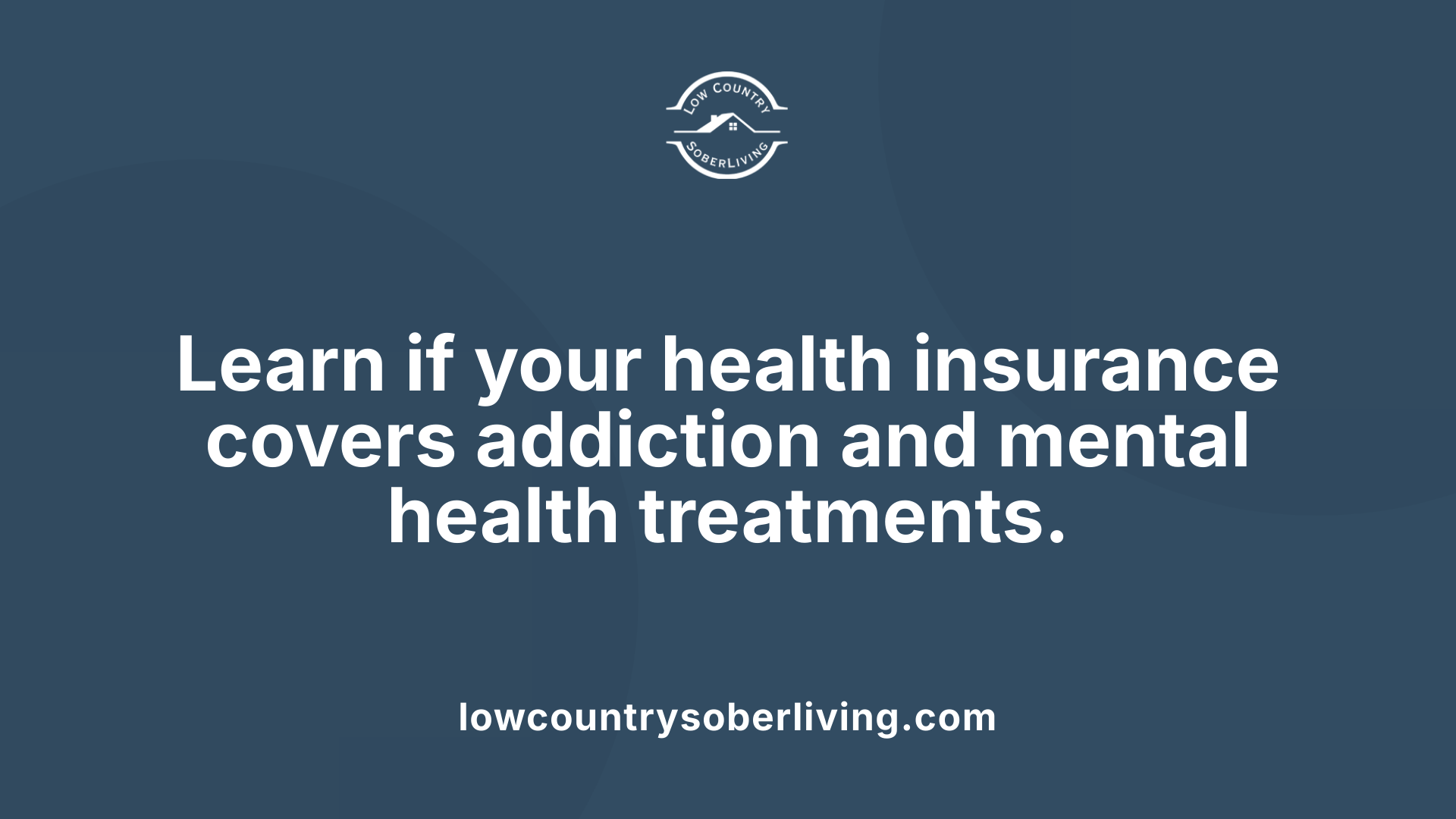
Is alcoholism covered under health insurance?
Yes, alcoholism is generally covered under health insurance plans, especially those regulated by the ACA and MHPAEA. Most group health plans, plans purchased through the Healthcare Marketplace, as well as Medicare and Medicaid, are required to provide coverage for addiction and mental health treatment without imposing greater restrictions than other medical services.
Coverage can include various treatments such as detoxification, inpatient and outpatient rehab, medication-assisted treatment (MAT), therapy, and follow-up care. However, the specific benefits and coverage limits depend on the individual insurance plan and provider. It is important for individuals to verify their benefits ahead of treatment to understand what services are covered and what out-of-pocket costs they may face.
Resources like SAMHSA’s National Helpline are available to help connect people with treatment options and support services. Overall, the recognition of alcohol addiction as a treatable health condition has led to broad insurance coverage, making access to care more attainable for many.
Who Pays for Drug and Alcohol Rehab?
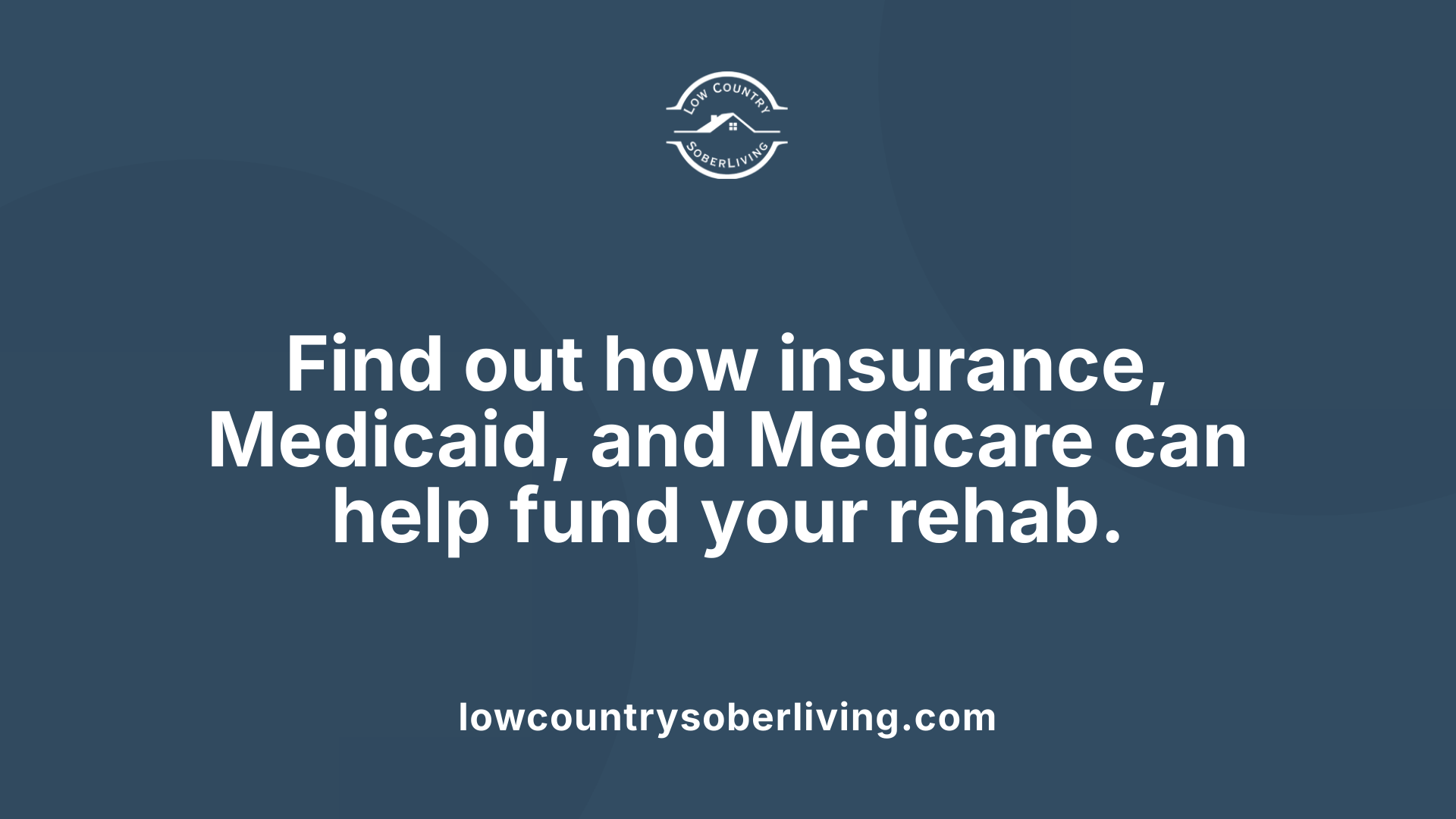
Who pays for rehab for drug addicts?
Most private insurance plans, including major providers like United Healthcare, Cigna, Blue Cross and Blue Shield, and Aetna, typically cover at least a portion of substance abuse treatment. Some plans may cover treatment in full, especially if the services are deemed medically necessary. Under the Affordable Care Act (ACA), addiction and mental health services are considered essential health benefits, ensuring widespread coverage.
The extent of coverage varies by plan and can include services such as detoxification, inpatient rehabilitation, outpatient therapy, and medication-assisted treatment. Many insurance policies cover between 60% to 90% of treatment costs depending on the plan's classification—bronze, silver, gold, or platinum.
Furthermore, Medicaid and Medicare also provide funding for eligible individuals. Medicaid generally offers comprehensive coverage for a variety of addiction treatment services, including outpatient and inpatient programs, especially for low-income individuals. Medicare primarily covers treatment for those over 65 or with specific disabilities, focusing mostly on outpatient services.
For those without insurance or with limited coverage, alternative funding options are available. These include state and local programs, SAMHSA grants, and nonprofit organizations dedicated to addiction recovery. Personal financing options, sliding scale payments, payment plans, or crowdfunding might also help cover treatment costs.
The Substance Abuse and Mental Health Services Administration (SAMHSA) operates a confidential helpline (1-800-662-HELP) that offers free assistance and referrals. This resource can guide individuals toward affordable, accessible treatment options and help navigate insurance benefits and other funding sources.
Will Insurance Cover Alcohol Rehab?
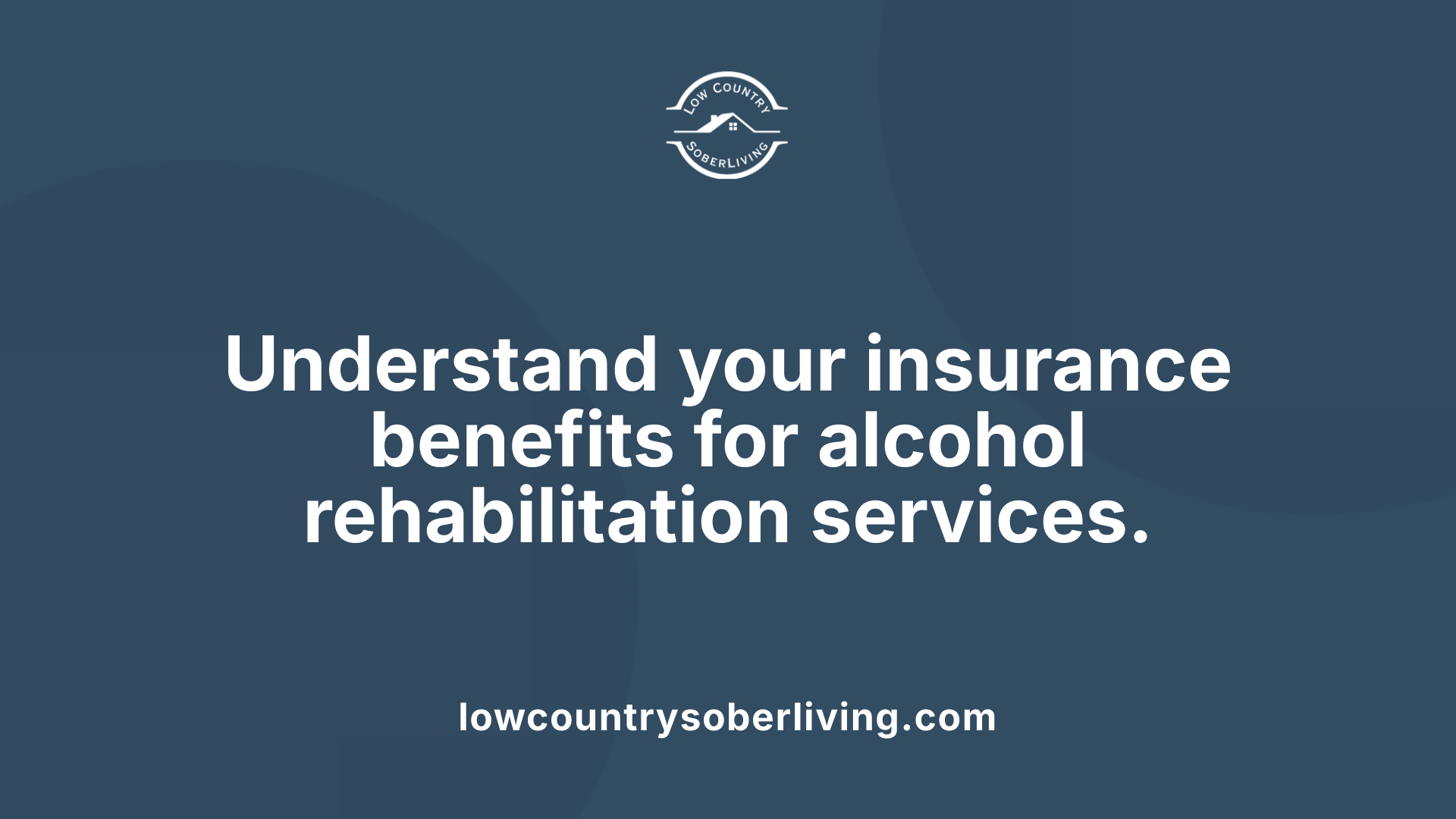
Will insurance pay for alcohol rehab?
Many health insurance plans do cover alcohol rehabilitation services, including detoxification, inpatient care, outpatient programs, and ongoing aftercare support. This coverage helps reduce the financial burden of treatment, making recovery more accessible.
However, the exact level of coverage varies based on your specific insurance policy. Plans such as HMO, PPO, Medicaid, or private insurance providers like Blue Cross Blue Shield, Cigna, and Aetna each have different benefits and network agreements. It is important to verify your coverage details before starting treatment.
You can do this by contacting your insurance provider directly, consulting your policy documents, or using online insurance verification tools offered by many treatment centers. Many centers also assist in this process, helping you understand what is covered and what costs may be your responsibility.
Thanks to the Affordable Care Act (ACA), substance use disorder treatments are classified as essential health benefits, which means most insurance plans are required to include coverage for alcohol rehab services.
Resources like SAMHSA’s National Helpline offer free assistance in navigating insurance options and locating in-network facilities. They can guide you through the process of verifying benefits, understanding coverage limitations, and exploring financial aid options if needed.
Common Reasons Why Insurance Might Deny Rehab Claims
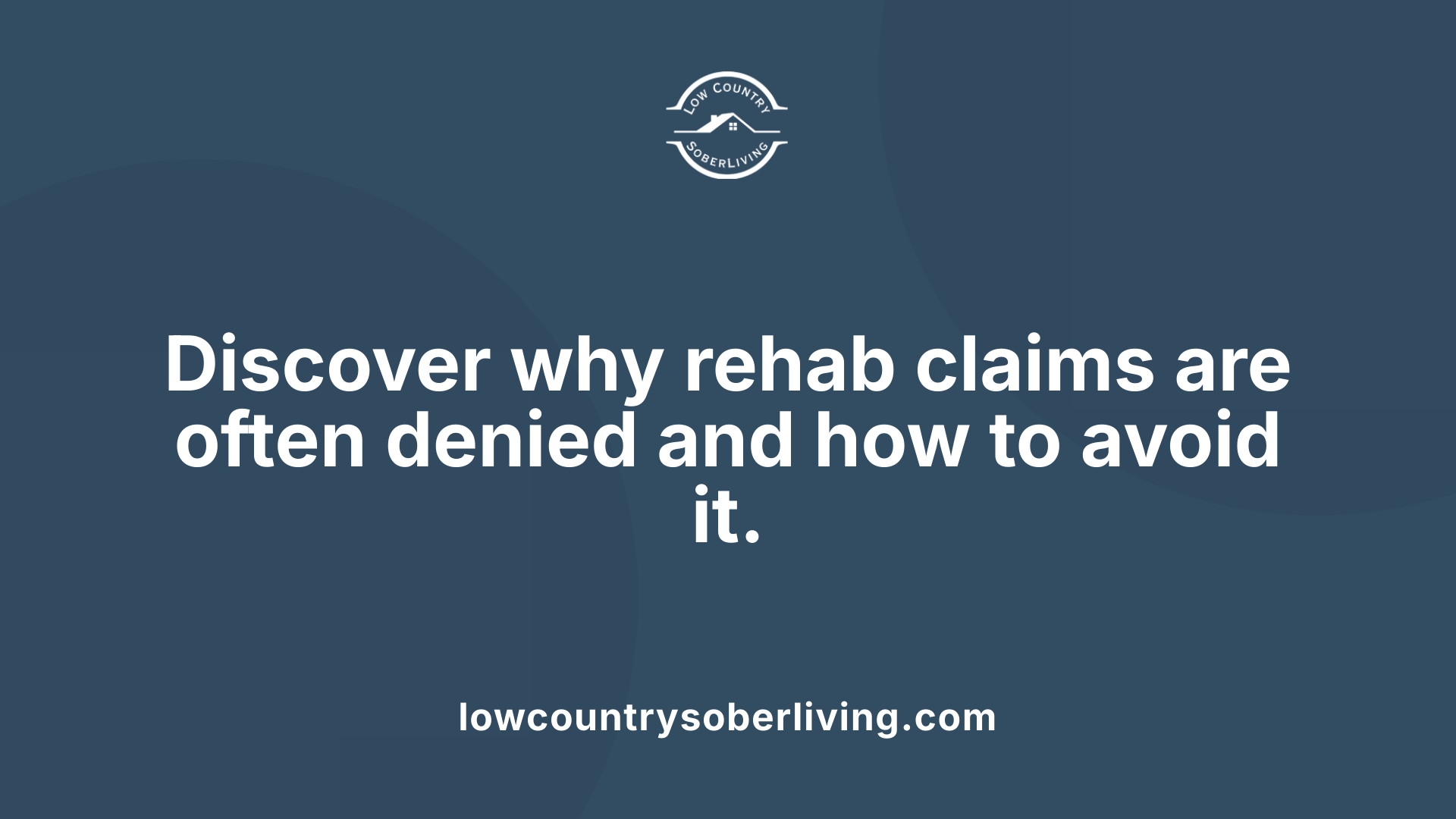 Understanding why insurance companies deny coverage for addiction treatment is crucial for those seeking help. One common reason is the lack of proper medical necessity documentation. Insurance providers require detailed records proving that the treatment is essential for the patient’s condition. If these documents are incomplete or unavailable, a claim could be rejected.
Understanding why insurance companies deny coverage for addiction treatment is crucial for those seeking help. One common reason is the lack of proper medical necessity documentation. Insurance providers require detailed records proving that the treatment is essential for the patient’s condition. If these documents are incomplete or unavailable, a claim could be rejected.
Another frequent issue pertains to out-of-network provider problems. Many insurance plans have a network of preferred providers. Claims from providers outside this network might not be approved, leading to coverage denials unless prior arrangements are made.
Policy exclusions and limits also play a significant role. Some insurance policies specify treatments or facilities they do not cover. Additionally, they might impose limits on the duration of treatment or specific services like residential care or outpatient programs.
Why do insurance companies deny rehab?
Insurance companies deny rehab claims for various reasons, such as questioning the medical necessity of the treatment, incomplete or insufficient documentation, or lack of prior authorization. They might also refuse coverage if the provider is out-of-network, if the policy has specific exclusions or limits on treatment duration, or if the patient's condition is pre-existing or not covered under their plan. Additionally, some denials occur when verification requirements are not met or if policy terms and conditions are violated. Patients can address these issues by carefully reviewing the denial letter, providing additional documentation, and filing appeals. Working closely with their healthcare provider and understanding insurance benefits can improve the chances of a successful claim.
Resources for Understanding Your Insurance Benefits
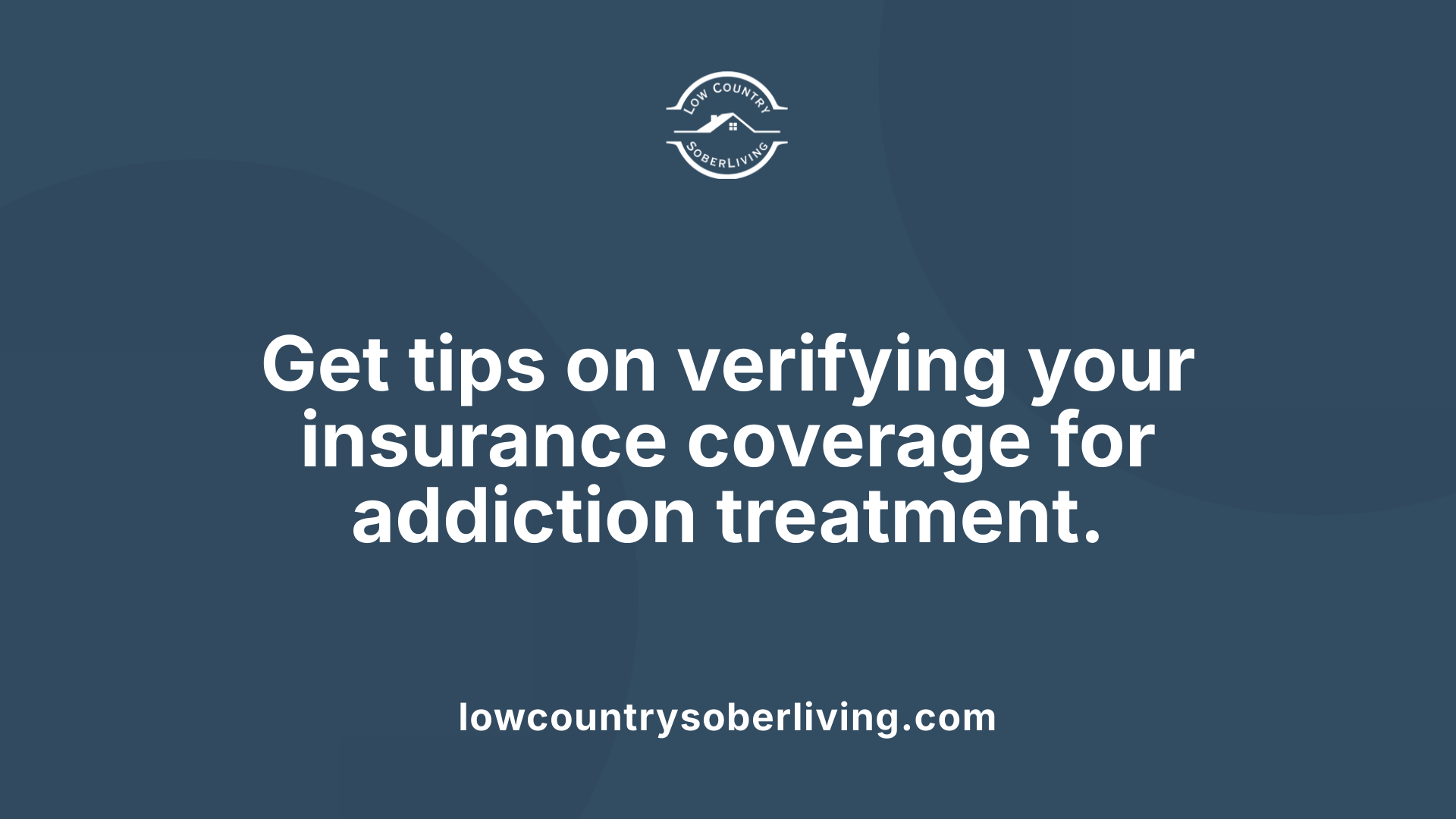
How can I verify my insurance coverage for rehab?
Verifying your insurance coverage is an essential step when planning for addiction treatment. The most straightforward way is to contact your insurance provider directly by calling the customer service number on your insurance card. Representatives can clarify what services are covered, any out-of-pocket costs, and whether specific treatment centers are in-network.
Many treatment centers also offer online tools to help with benefit verification. These tools can provide a preliminary assessment of your coverage and recommend in-network providers. Some centers assist patients by performing benefit checks or obtaining prior authorizations on your behalf.
Before starting treatment, it's important to ask about important details such as coverage limits, copayments, deductibles, and whether you must use in-network providers to receive full benefits. Understanding these factors ahead of time can prevent unexpected expenses and delays.
Gathering detailed information by consulting both your insurance company and treatment facility ensures transparency. This proactive approach makes the process of accessing care smoother and helps you better plan financially.
Working with treatment centers
Treatment centers often have dedicated staff who can help verify your insurance benefits, submit claims, and handle necessary authorizations. They can guide you through the paperwork, clarify what costs you might be responsible for, and suggest financial aid options if your coverage is partial.
Many centers also work with a network of insurance providers and can advise you on which facilities are in-network, which generally reduces your out-of-pocket costs. Establishing clear communication with the treatment facility about your insurance status can facilitate seamless billing and reduce administrative challenges.
Assessing out-of-pocket costs
Once your insurance benefits are verified, you should assess your potential out-of-pocket expenses. This includes copayments, coinsurance, deductibles, and any services that may not be fully covered. Some insurance plans have annual or lifetime limits that could impact your treatment.
If costs are a concern, ask your provider about sliding scale fees, payment plans, or assistance programs. Many treatment centers and insurance plans also offer options like grants or scholarships to help cover treatment costs.
Understanding your insurance benefits thoroughly allows you to plan financially for treatment and explore additional resources if needed.
| Aspect | Details | Notes |
|---|---|---|
| Verification methods | Phone calls, online tools, provider assistance | Ensure all info is current and accurate |
| Working with treatment centers | Benefit checks, preauthorizations, network status | Helps identify cost-effective options |
| Out-of-pocket costs | Copays, coinsurance, deductibles, limits | Clarify before starting treatment |
By actively engaging with both your insurance company and treatment providers, you can better navigate your coverage, reduce surprises, and focus on your path to recovery.
Maximizing Your Treatment Access and Benefits
Insurance coverage for drug and alcohol rehab is generally comprehensive, supported by federal laws that mandate essential benefits for mental health and substance use disorders. However, coverage details vary based on the specific insurance plan, provider, and treatment facility. Patients are encouraged to verify their benefits, understand their coverage levels, and work with treatment centers to find in-network options. Resources like SAMHSA’s National Helpline are invaluable for free guidance and referrals, helping individuals navigate the process and access the care they need. Ultimately, understanding your insurance options and knowing your rights can significantly ease the path to recovery.
References
- National Helpline for Mental Health, Drug, Alcohol Issues - SAMHSA
- Does Blue Cross Blue Shield Cover Drug & Alcohol Rehab?
- Does Insurance Cover Drug & Alcohol Rehab?
- How Much Does Drug and Alcohol Rehab Cost With Insurance?
- Will Insurance Cover the Cost of Drug Rehab in Colorado?
- Does Health Insurance Cover Rehab in Connecticut?
- Does My Insurance Cover Alcohol Addiction Treatment?
- Insurance | Drug and Alcohol Rehab Cost | Hazelden Betty Ford
- Does Insurance Cover Drug or Alcohol Rehab in Massachusetts?

